Jewish History
Clara Raven
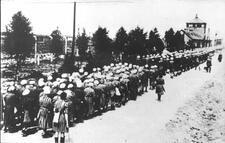
Ravensbruck Women's Concentration Camp
Created to incarcerate women and serve as a “model” concentration camp, Ravensbrück imprisoned about 132,000 women and children between 1939 and 1945, committing them to slave labor and miserable conditions. In addition to thousands of political prisoners, criminals, Jehovah’s witnesses, and those deemed “asocial,” about 20 percent of the camp’s prisoners were Jewish.
Dalia Raz
Dalia Raz was an officer in the Israeli Defense Forces who worked to redefine women’s role in the Israel Defense Forces. As an OC (Officer Commanding) in the IDF Women’s Corps, she worked to expand the types of duties women were able to perform while serving in the IDF and encouraged women’s participation across all sectors of the IDF’s operations.

Miri Regev
Miriam “Miri” Regev is a former Brigadier-General in the Israel Defense Forces Spokesperson’s Unit and a current member of the Knesset in the Likud party. As a member of the Knesset, Regev has held government postings as Minister of Culture and Sport and Minister of Transportation and Road Safety.
Eva Gabriele Reichmann
Born in Silesia, Eva Gabriele Reichmann studied economics in Germany and, after fleeing the Nazis, in London. A prolific writer, especially after her retirement in 1959, Reichmann focused mainly on Judaism and the social history of German Jewry. She was awarded several medals for her contributions to democracy, freedom, and tolerance and died at the age of 101.
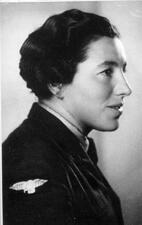
Havivah Reik
Havivah Reik was a Palmah soldier and parachutist who was killed by Nazi collaborators on a secret mission to save thousands of Slovakian Jews.
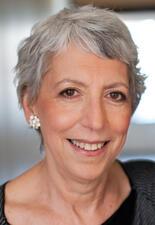
Gail Twersky Reimer
Gail Twersky Reimer is a teacher, writer, editor, passionate advocate for the humanities, and visionary pioneer of Jewish feminism. Reimer founded the Jewish Women’s Archive in 1995 to ensure that Jewish women’s stories would become integral parts of the historical record. Under her leadership, JWA pioneered the use of virtual technology in collecting, chronicling, and transmitting knowledge of Jewish women’s lives.
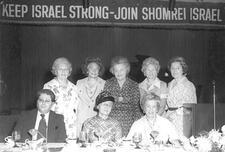
Religious Zionist Movements in Palestine
Religious Zionism, distinguished from the secular Zionists by its religious nature and from the ultra-Orthodox community by its Zionism, consisted of two major movements in the Yishuv: the Mizrachi and the Ha-Po’el ha-Mizrachi, a trade union. Women created their own organizations within these movements but distinguished themselves from the men through their support of women and their interests.
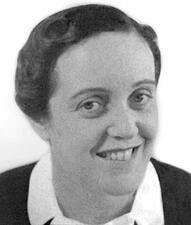
Resistance, Jewish Organizations in France: 1940-1944
Despite the fact that women did not hold a high status in prewar French society, Jewish women played a disproportionately large role in the French resistance against the Nazis. Hundreds of women protected their fellow Jews, especially Jewish children, from the Nazis.
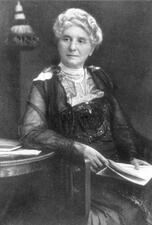
Elise Richter
Elise Richter could not pursue a university degree until she was in her 30s, when she became part of the first group of women to study at the University of Vienna. She received doctoral and post-doctoral degrees and subsequently taught classes on various Romance languages while publishing extensively, making important contributions to the field of historical and comparative linguistics.
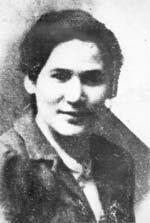
Roza Robota
A member of the Jewish underground in the Auschwitz-Birkenau death camp, Roza Robota was one of the organizers of an operation to smuggle explosives for use by members of the Sonderkommando (Jewish forced-labor unit of concentration camp prisoners) in the October 7, 1944 revolt at the camp.
Romania, Women and Jewish Education
Since the adoption of a public school system in the mid-1800s in Romania, Jewish women in Romania women have had to fight anti-Semitism and sexism to pursue their education.
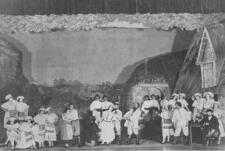
Romanian Yiddish Theater
Romania was a wellspring of the Yiddish theater, as there were Jewish theater troupes in the major Romanian cities and acting troupes traveled throughout the country performing dramas, comedies, musicals, and operettas. Women played a significant role in performing and shaping Romanian Yiddish theater and became known internationally for their work on the Yiddish stage.
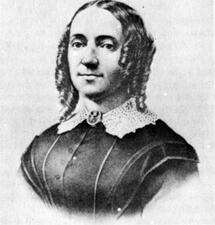
Ernestine Rose
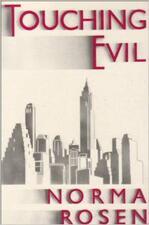
Norma Rosen
Born in Brooklyn in 1925 to secular and assimilated parents, Norma Rosen was an American-Jewish novelist, essayist, educator, editor, and professor. Rosen’s exploration of Jewish history and religion in her writings contributed to questions surrounding Jewish theology and Jewish feminism in the second half of the twentieth century.
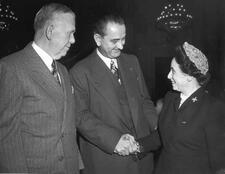
Anna Rosenberg
Anna Lederer Rosenberg was an administrator, diplomat, and public relations and manpower expert who advised multiple presidents. In 1950 she became the first female Assistant Secretary of Defense. Deeply admired by military and government leaders, Rosenberg’s success demonstrates how deftly she maneuvered within these male-dominated arenas.
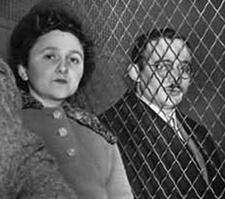
Ethel Rosenberg
Gertrude Rosenblatt
Gertrude Rosenblatt earned praise for the many ways she helped build the State of Israel. From her role as one of the first directors of Hadassah to her direct service for the needy, she was a dedicated and active Zionist.
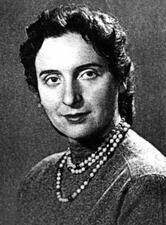
Chava Rosenfarb
Chava Rosenfarb, a major Yiddish novelist of the second half of the twentieth century, is one of the few Holocaust survivors who transmuted their experiences into fiction rather than memoirs or reminiscences.
Käte Rosenheim
A social worker by training, Käte Rosenheim held numerous public service positions in Germany before the Nazis took power. In 1933 she joined the Reich Representation of German Jews; before she herself fled to the United States in 1940, she facilitated the escape of over 7,250 Jewish children from Nazi Germany.
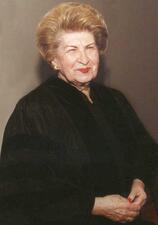
Hadassah Rosensaft
Dr. Hadassah Bimko Rosensaft played an instrumental role in saving the lives of fellow concentration camp inmates at Auschwitz-Birkenau and then at Bergen-Belsen. Rosensaft was later involved in the creation of the United States Holocaust Memorial Museum.
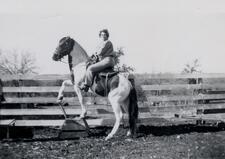
Frances Rosenthal Kallison
Frances Elaine Rosenthal Kallison was a horsewoman and historian, a cofounder of the Texas Jewish Historical Society, and the only Jewish woman in the National Museum and Cowgirl Hall of Fame. A regional leader of the National Council of Jewish Women, she lobbied to end the poll tax and open pre-natal clinics for the poor. The exhibit she curated on Texas Jewry for the 1968 World’s Fair in San Antonio has been continually updated.
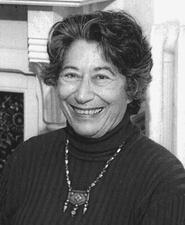
Sylvia Rosner Rothchild
Sylvia Rosner Rothchild was a prolific writer and historian whose works of fiction and nonfiction explored American Jewish identities and captured audiences. Many of her writings depict the descendants of Eastern European Jews who arrived in the United States in the decades surrounding the turn of the twentieth century.
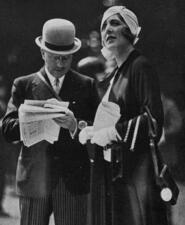
Baroness Germaine de Rothschild
A member of one of France’s most privileged Jewish families, Germaine de Rothschild (née Halphen) was a noted philanthropist, accomplished musician, author of two books, and mother of four. Most significantly, she orchestrated France’s Kindertransport efforts, helping provide refuge to between 350 and 450 Jewish children.
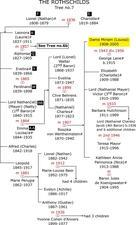
Bethsabée Rothschild
Bethsabée (Hebrew: Batsheva) de Rothschild, the scion of a well-known philanthropic family, helped support numerous activities in the United States and Israel, especially dance, music, and science.She created the Batsheva and Bat-Dor dance companies and was awarded the Israel Prize in 1989 for her special contribution to Israeli society.


